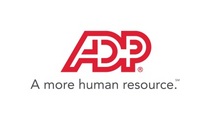ROSELAND, NJ — (Marketwired) — 09/27/17 — A new ® (ADPRI) examines the nuances of wage garnishment across the country, and demonstrates how company size, industry, and location factor into the compliance complexities a business faces.
Seven percent of Americans nationwide have their paychecks garnished, often leading to employee stress and costly compliance issues for companies. Yet wage garnishments are not spread evenly across employees. The data shows that 26 percent of men ages 35 to 55 working at large manufacturing jobs in the Midwest have their wages garnished. On average, this group makes $44,000 a year and each has nearly two wage garnishments.
The ADPRI study is based on the 2016 anonymous pay data of 12 million U.S. workers, and studied four types of wage garnishments: child support, tax levies, bankruptcy, and “other” general garnishments, such as student debt or consumer loans. Wages typically are garnished by court order, with the amount of the garnishment deducted from an employee–s salary until a support obligation is satisfied or a debt, often with interest, costs and fees, is paid.
Of the four categories studied, child support is the most common wage garnishment (3 percent), followed by student debt or consumer loans (2.9 percent), and tax levies (1.5 percent). Just 0.4 percent of U.S. employees have wages garnished due to bankruptcy. Of those with garnishments, 12 percent of workers face multiple types of wage garnishment.
Strikingly, 71 percent of workers whose wages are garnished are men, overwhelmingly because of child support. Wage garnishment for women typically is caused by student or consumer debt. In addition, middle-aged workers between the ages of 35 and 54 account for 62 percent of those with wage garnishments.
How Garnished Wages Affect Employers
The study also introduces a new metric useful to employers: average number of wage garnishments per employee. Nationally, employees with garnished wages face on average 1.4 obligations. This figure rises in the Midwest, where those with garnished wages carry 1.49 garnishments on average. In the Northeast, employees with garnished wages carry an average of 1.33 garnishments. The highest rate among states is in Virginia, where employees with garnished wages carry on average 1.6 garnishments.
Similar trends emerge among industries, where goods-producing companies see higher employee garnishment rates (10 percent) than firms in the service sector (7 percent). The Midwest and Southern regions are heavily invested in goods-production, and have proportionally higher numbers of employees with wage garnishments than other areas of the country.
In terms of company size, the study revealed a higher wage garnishment rate in larger companies, as well as a greater number of employees carrying higher numbers of wage garnishments. Larger companies proportionally also have more employees with student-related and consumer indebtedness. Employees of smaller companies are more likely to owe child support, according to the research.
“Wage garnishment can have a profound effect on the employee who is being garnished, as well as the employer who must implement and comply with the garnishment order and applicable regulations,” said Julie Farraj, division vice president and general manager of Wage Garnishments and Unemployment/Employment Verification Services for ADP Added Value Services. “It–s important for businesses of all sizes to understand the different types of wage garnishment, familiarize themselves with the laws governing them, and learn ways to accurately and efficiently process them. The expanded view of wage garnishments outlined in this new study may provide employers with greater insights into how garnishment may affect their workforce and organizations.”
(NASDAQ: ADP)
Powerful technology plus a human touch. Companies of all types and sizes around the world rely on ADP cloud software and expert insights to help unlock the potential of their people. HR. Talent. Benefits. Payroll. Compliance. Working together to build a better workforce. For more information, visit .
The ADP logo, ADP, ADP Research Institute, and ADP A more human resource are registered trademarks of ADP, LLC. All other marks are the property of their respective owners.
Copyright © 2017 ADP, LLC. All rights reserved.
ADP-Media
Meaghan Smith
347 869-4790


You must be logged in to post a comment Login